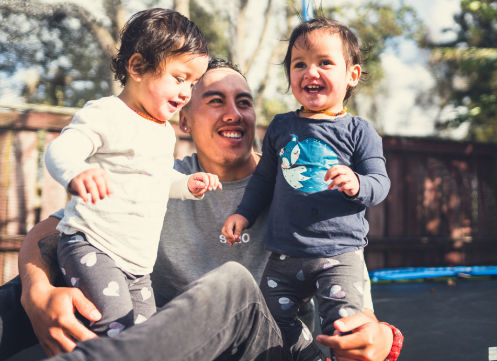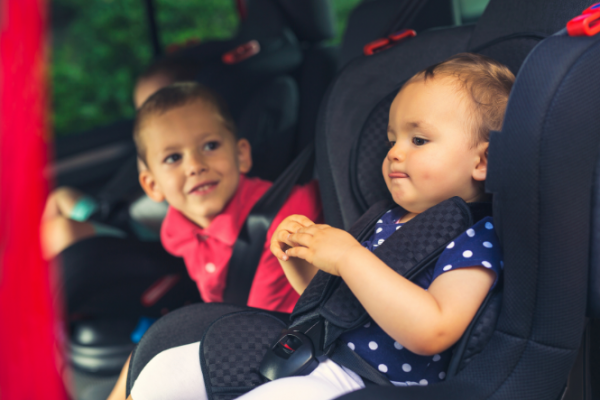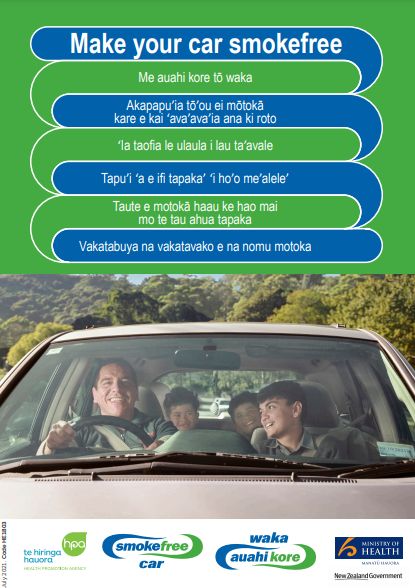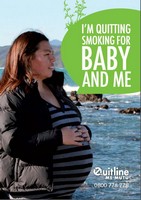If you're a frequent visitor to Healthify, why not share our site with a friend? Don't forget you can also browse Healthify without using your phone data.
Smokefree for your children
Key points about being smokefree for your tamariki
- Second-hand smoke is especially dangerous to tamariki (children).
- Find out how you can keep your tamariki safe so they can live long and healthy lives.

Second-hand smoke refers to being exposed to the harmful effects of tobacco because someone is smoking near you. It includes the smoke the person has breathed out (exhaled smoke) and also smoke from the burning cigarette.
In Aotearoa New Zealand, second-hand smoke is the greatest cause of death from something in the environment. There is no safe amount of exposure to second-hand smoke. People who are exposed to second-hand smoke can suffer many of the same diseases that smokers get, such as lung cancer, coronary heart disease, nasal sinus cancer and stroke.
Children are particularly at risk of second-hand smoke because of their lower body weight and smaller lungs. They often have no way of getting away from smoke. Tamariki need to be protected from second-hand smoke since it can increase their risk of:
- middle ear infections and glue ear
- lower respiratory illness, such as bronchitis, croup, pneumonia and bronchiolitis
- asthma and it can make asthma worse
- delays in lung growth
- meningococcal disease
- sudden unexpected death in infancy (SUDI).
It can also affect their lung development, and their learning and behaviour. They can do less well at school and can have trouble paying attention.
Exposure to second-hand smoke during pregnancy can reduce foetal growth and lead to other complications.
Children and teenagers whose parents or caregivers smoke are seven times more likely to become smokers themselves. You’ll be setting them a great example by quitting. Plus, you’re likely to live longer to enjoy your family and friends.
Toxic chemicals from smoke can end up on fabrics, walls, furniture, clothing, household dust, and even on our skin – and it stays there for a long time. Children can even end up with poisons in their digestive system from touching contaminated objects and putting their hands in their mouth.

Image credit: Canva
It is illegal to smoke or vape in a vehicle that has tamariki under 18 years of age in it (whether the vehicle is moving or not). Make not just your car smokefree but make your home and outdoor spaces smoke free. Help protect our future generations live well.
- Make your home, outdoor areas and car strictly smokefree areas, 24 hours a day, 7 days a week, 365 days a year.
- Ask for support from your family/whānau by following your no smoking house and car rules.
- Help support your household member or friend to stop smoking.
- Get rid of all your lighters and smokes and keep them out of reach so you are not tempted to smoke.
- Have some distractions ready for when you are tempted to smoke such as music or a non-alcoholic drink.
- Be a good role model and never smoke in front of children. This can reduce the risk of them growing up to be smokers.
- If you smoke, get support to stop now. Support doubles your chance of staying quit.
Apps reviewed by Healthify
You may find it useful to look at some Quit smoking apps.
Why quit smoking(external link) Quitline, NZ
Second-hand smoke(external link) Smokefree NZ & Health Promotion Agency, NZ
Safe Sleep For Your Baby(external link) KidsHealth, NZ
Cough in children(external link) KidsHealth, NZ
Smokefree 2025(external link) Health Promotion Agency, NZ
Resources
I quit smoking for baby and me(external link) Quitline, NZ, 2021
Beat the smoking addiction(external link) Quitline, NZ, 2013
Quit smoking(external link) Heart Foundation, NZ, 2018 English(external link), Chinese(external link), Hindi(external link), Korean(external link), te reo Māori(external link), Samoan(external link), Tongan(external link)
Make your car smoke free HealthEd, NZ, 2023 English/Multilingual(external link), te reo Māori(external link), Cook Islands Māori(external link), Fijian(external link), Niuean(external link), Sāmoan(external link), Tongan(external link)
Apps
Brochures

English/Multilingual, te reo Māori, Cook Islands Māori, Fijian, Niuean, Sāmoan, Tongan

Quitline, NZ, 2021
Credits: Healthify Editorial Team
Last reviewed:
Page last updated:





